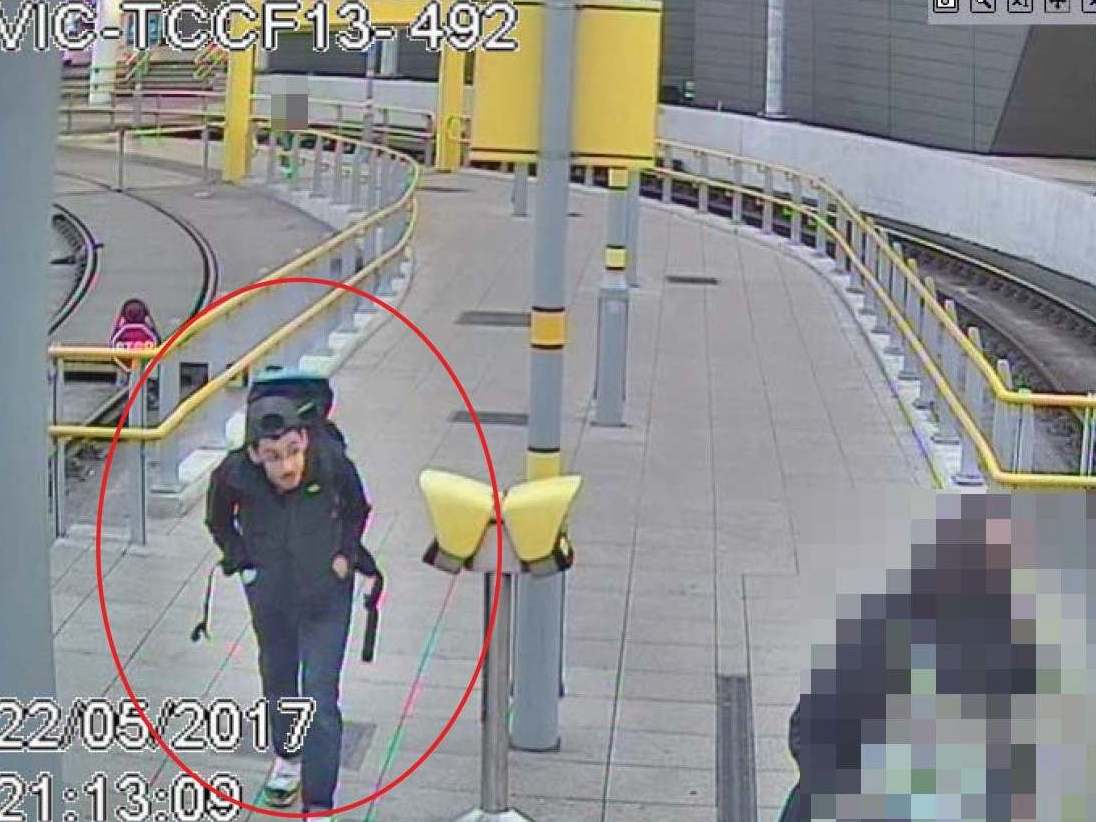MI5 admits Manchester Arena bomber could have been stopped days before attack
Counter-terror police could have stopped and questioned Salman Abedi when he flew into Manchester Airport, inquiry hears

The Manchester Arena bomber could have been stopped if he had been questioned by counter-terror police days before the attack, a public inquiry has heard.
Salman Abedi and his brother Hashem travelled to Libya on a one-way ticket in April 2017 and left bomb components in a parked car near a contact’s flat.
Salman flew back into the UK alone on 18 May 2017 – four days before the suicide bombing – but was not stopped on his return to Manchester Airport.
An MI5 officer, who can be named only as Witness J, admitted that police could have apprehended the terrorist under terror laws, questioned him and seized his electronic devices.
The stop would have been under Schedule 7 of the Terrorism Act 2000, which empowers police to determine whether people passing through borders may be involved in terrorism, and is frequently used to gather intelligence and disrupt suspected plots.
Pete Weatherby QC, representing some of the bereaved families, said a “port stop” could have revealed Salman’s plans.
He questioned whether even if Salman had been released, security services could have observed anti-surveillance measures he then took by buying a new phone and SIM card at the airport and followed him directly to the car filled with bomb components.
“It’s certainly possible you would have observed slightly unusual behaviour at the airport then followed it on and, as I say, he would have led you to the bomb,” Mr Weatherby told Tuesday’s hearing.
“If he had been stopped by police, putting that together, there’s a chance it would have stopped him carrying out the plot?”
Witness J replied: “Conceivably, yes. To offer some context, for us, or the police in combination, to follow the trail would have required us to be running a very high priority investigation.
“It would require almost certainly surveillance, normally allocated to high priority investigations.
“We had fragments of what we know now. We had a blurred picture at that time, and we did not conclude we had intelligence related to attack planning.”

On Monday, Witness J agreed that a “better course of action” would have been to ensure Salman was stopped when re-entering the UK.
But he maintained that deciding against the action was a “reasonable judgement” and may not have stopped the bombing.
Sir John Saunders, the chair of the inquiry, said it was “pure speculation” for MI5 to argue that the attack could not have been stopped with different action because there was no way of knowing what a port stop would have found.
“Suppose you’d looked at Salman Abedi’s phone and you’d found detailed instructions on how to make a bomb, and that he had recently been looking at it, you might have taken immediate action which may have stopped it happening,” he told Witness J.
The MI5 officer said it would have taken time to examine the bomber’s phone and formally consider making him the subject of an investigation.
He said it would have been “extremely challenging” to put surveillance on Salman in the four days between his return to the UK and his attack.
Sir John Saunders also questioned whether Salman might have been “put off” if he had been stopped and suspected MI5 “are on to me”.
A review conducted by Lord Anderson following the 2017 terror attacks said the failure to place Salman on a “ports action” list after he travelled to Libya in April that year was a missed opportunity.
“This would have triggered an alert when he returned shortly before the attack, which could have enabled him to be questioned and searched at the airport by CT (counter-terrorism) policing under Schedule 7 to the Terrorism Act 2000,” it noted.
The report also said that MI5 received intelligence “whose true significance was not appreciated at the time” before the bombing.
Witness J said post-attack reviews concluded a “successful pre-emption of the attack would have been unlikely”.
He added: “I support that judgement because I have seen the material. The planning was well underway by the time he went to Libya.”
Sir John said he would be “looking critically” at the issue during closed hearings, where families of the bereaved, their lawyers and the press will be excluded while matters of national security are examined.
Salman was a closed subject of interest (SOI) for MI5, meaning he was not under investigation and was one of 20,000 such closed SOIs at the time, when security services were also running 3,000 live counter-terror investigations.
Witness J said MI5 was under pressure with the workload increasing as 850 people travelled from the UK to Syria, with fighting continuing in neighbouring Iraq and Libya’s continuing civil war.
Earlier, the inquiry heard that Salman was known to have associated with at least eight other suspect individuals linked to terrorism, and the area of south Manchester where he lived had been identified as having a potential problem with extremism and radicalisation. The inquiry continues.
Additional reporting by PA


